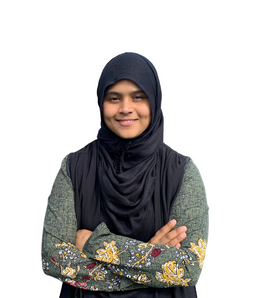Dystinct Knowledge Base
A collection of evidence based articles to nurture dystinct minds from leading experts in the field of learning disabilities such as dyslexia, dyscalculia, dyspraxia and dysgraphia.
Table of Contents
🔺
As a paid member, you have access to the articles listed in this knowledge base page.
Nurturing Dystinct Minds
#Dyslexia #Dyscalculia #Dyspraxia #Dysgraphia #ADHD
Nurturing Dystinct Minds
- Nurturing Neurodiversity and Empowering Neurodiverse Learners to Drive Their Own Brains – By Sarah Sharpe (Neurodiversity Education Specialist Sharpe-Minds.com) [Click here to read]
Sarah Sharpe discusses the importance of adopting a strengths-based approach when addressing the learning needs of neurodiverse individuals and provides practical tips on how educators can ensure neurodiverse students are provided with every opportunity to reach their full potential.
Dystinct Reports
- Dystinct Report - Interview of Donna Hejtmanek, Founder of The Science of Reading - What I Should Have Learned in College - by Flynn Eldridge (Journalist at Dystinct) [Click here to read]
Ten-year-old journalist Flynn Eldridge has a chat with Donna Hejtmanek about her Facebook group, The Science of Reading- What I Should Have Learned in College, and her viewpoints on the Structured Linguistic Literacy approach.
Dyslexia
Dyslexia
Evidence Matters
- Whole Class Teaching Lifts All Learners - by Dr Nathaniel Swain (Teacher, Instructional Coach, Writer, and Founder of ThinkForwardEducators.org) [Click here to read]
Dr Nathaniel Swain reflects on how and why his preferred method of supporting struggling learners in classrooms has shifted from individual learning intervention and differentiated groups to robust whole class instruction at tier 1 that allows struggling learners to realise their academic potential through repeated exposure to more of the same excellent quality instruction as their peers. - Why is Emotional Literacy the Key to Success for All Learners? – by Dr Sarah Moseley (Researcher, Consultant, and Trainer in all areas of SEND, dyslexia, and school improvement DrSarahMoseley.com) [Click here to read]
Dr Sarah Moseley emphasises the importance of developing emotional literacy in children, particularly those who struggle, to help them find internal motivation and overcome adversity on their path to success. - Shared Book Reading: An Activity for Children of All Ages- by Dr Tessa Weadman (Speech Pathologist, Lecturer, and Researcher at Latrobe University, School of Education) [Click here to read]
Dr Tessa Weadman highlights the benefits of shared book reading for children's oral language and early literacy development and provides strategies for parents to engage in interactive reading with their children. - There Are Many Stories – by Dr Jennifer Petrich, Sara Lee, and Bradley Johnson (TheLiteracyDr.com) [Click here to read]
Dr Jennifer Petrich, Sara Lee, and Bradley Johnson narrate how they embarked on a journey of structured word inquiry with struggling students, thereby leading them to understand the power of the English writing system, fostering connections in the meaning and structure of words, and empowering them to rewrite their own stories with their newfound confidence and independence. - Understanding Executive Functions - The Impact of Task Initiation Difficulties by Helen Trethewey (Public Speaker, Dyslexia Specialist, Educational writer TwiceExceptionalLearners.com) [Click here to read]
Helen Trethewey explains how task initiation, an executive functioning skill, can be a genuine difficulty for many students and how educators can help students overcome struggles with task initiation in classrooms. - Teaching the Alphabetic Principle with a Speech-To-Print Approach - By Holly Ehle (Kindergarten teacher, Literacy specialist, Founder of TheScienceOfLiteracyLearning) [Click here to read]
Holly Ehle discusses what current research reveals about how the brain processes and stores phonemes and graphemes in the brain and what implications that science has for classroom instruction that seeks to teach letter-sound correspondences and the alphabetic principle. - Without Words: Immerse Your Child Into the World of a Wordless Picture Book's Wondrous Artistic Adventures -By Joanna Migo (Dyslexia Therapist TheRainbowReading.com) [Click here to read]
Joanna Migo demonstrates how the wondrous world of wordless picture books introduces children to metacognitive reading strategies while promoting visual literacy, imagination, and language development, paving the way for later reading success. - What's Stopping You? - Trying a New Reading Approach - by Donna Hejtmanek (Retired teacher and Founder of Science of Reading—What I Should Have Learned in College FB group) and Mary Rudzinski (Freelance writer, former classroom teacher & outreach educator www.Mrudzinski.com) [Click here to read]
Donna Hejtmanek and Mary Rudzinski describe some of the factors holding back a shift in classroom practices and suggest some steps that can be taken to step off the current dismal trajectory to improve student outcomes. - Another Way: How Can One Teach Decoding without Rules and Syllable Types? - By Dr Marnie Ginsberg (Literacy Consultant and Founder of Reading Simplified readingsimplified.com) [Click here to read]
Dr Marnie Ginsberg explains the three key principles guiding the pedagogical choice in the Structured Linguistic Literacy Approach to teach learners, including those with dyslexia, skilled decoding without the use of rules and syllable types. - Then and Now: How Linguistic Phonics and EBLI have transformed my literacy instruction - By Jennifer Newman (Speech-Language Pathologist and Licensed Reading Specialist) [Click here to read]
Jennifer Newman describes the various elements of EBLI instruction and how adopting a shift from Print to Speech to Speech to Print orientation has made a significant difference in her students' acquisition of foundational reading and spelling skills. - Supporting Structured Linguistic Literacy at home with games and decodable reading books - By Clair Wilson (Director of Phonic Books Ltd phonicbooks.co.uk) [Click here to read]
Clair Wilson emphasises the importance of step-by-step progression in literacy instruction and lists some engaging ways of reinforcing instruction with games and activities to help beginner and struggling readers along their journey to independent reading. - How and Why a Structured Linguistic Literacy Approach Closes the Gap Quickly - By Nora Chahbazi (Founder, Evidence Based Literacy Instruction, EBLI eblireads.com) [Click here to read]
Nora Chahbazi describes the logic underpinning the efficiency of the Structured Linguistic Literacy approach and demonstrates how it differs from the two other widely known approaches to reading instruction; Balanced Literacy and Traditional Phonics. - Will the Real Sight Word Please Stand Up? - By Dr Svetlana Cvetkovic (Reading Specialist) [Click here to read]
Dr Svetlana Cvetkovic clarifies the confusion around the term "sight word", explains how sight vocabularies develop, and sheds light on both optimal and nonoptimal instructional practices from a Structured Linguistic Literacy perspective. - A Parent Guide to effective practice - by Clare Wood (Literacy Specialist and Founder theliteracyhill.com) [Click here to read]
Clare Wood recommends effective instructional practices aligned with the Structured Linguistic Literacy approach that parents can adopt to help their children systematically learn concepts and skills in tiny sequential steps that lead to mastery over time.
Dystinct Journeys
- Children Should Be Tested in Year One for Learning Disabilities - By Nate Haste [Click here to read]
An essay written by 14-year-old Nate Haste to emphasise the importance of testing children for learning disabilities in year one to provide them with appropriate support and strategies early on to prevent long-term negative effects. - Dystinct Journey of Mila Smith - This is Mila (facebook.com/thisismilabook) [Click here to read]
This is the story of Mila Smith, an eleven-year-old author from Trinidad and Tobago. Despite facing challenges with reading and writing, Mila wrote and self-published her book "This is Mila" at the age of eight, which celebrates her strengths and unique qualities. - Dystinct Journey of Nolan Courchaine [Click here to read]
The story of nine-year-old Nolan Courchaine, the determined young boy from Indiana, USA, who has taken up running as a means to raise funds to give back to his school which has played a significant role in his academic and social development. - Dystinct Journey of William Jack (PizzaRebellion.co.uk) [Click here to read]
The journey of William Jack, the dyslexic entrepreneur behind the Sussex-based robotic pizza vending machine company called Pizza Rebellion that won the Best UK Business Innovation award at the Pizza, Pasta and Italian Food Association awards in 2022. - The Dystinct Journey of Flynn Eldridge [Click here to read]
The story of how 10-year-old Flynn Eldridge has found his "bright" and "quirky" back after a rough start to school. His parents, Carrie and Anthony Eldridge reveal how they homeschool their neurodiverse children and support them in pursuing their passions. - The Dystinct Journey of Nancy and Catie Dressel (Teacher, Coach, Consultant, and Founder of braindifference.org and President of wi-reads.org) [Click here to read]
The story of Nancy Dressel, a neurodiverse mum who desperately tried to seek help for her children's ongoing challenges with learning difficulties for over a decade. When help finally arrived in the form of a 3-day EBLI workshop, it ended up changing her life too. - The Dystinct Journey of Ann [Click here to read]
The story of Ann, a successful Florida-based marketing executive who struggled to read and write in private all her life until she was recently taught the right way to read using the Structured Linguistic Literacy Approach. Ann now wants to spread awareness for this approach to teaching reading as the price of not talking about sub-literacy is too high. - Tips for the best start on the road to literacy - by Dr Jeannine Herron (Research Neuropsychologist, Founder and Director of talkingfingers.com) [Click here to read]
Dr Jeannine Herron discusses the need for children to develop the ability to use the alphabet code independently and provides pointers on how parents and educators can help them establish automatic encoding and decoding skills. - The Dystinct Journey of David Chalk [Click here to read]
By 62, David Chalk had seen it all. He was a popular media personality, had built his business empire, made millions, was awarded a doctorate in technology by the University of the Fraser Valley for holding the world's only true patent in cyber security, and was described as having a brilliantly gifted mind. While David conquered the world, he never managed to achieve the only thing he always had truly wanted-To Read Fluently. In 2021, he finally learned to read and did it on camera for everybody to see. David's story is one of many stories featured in the documentary film The Truth About Reading that aims to change the conversation around literacy by highlighting illiteracy, sub-literacy, and learning disabilities, including dyslexia. This article is about how David has finally found joy and peace after 62 years of feeling like an imposter and his plea to parents to help their children find the same joy.
First Person
- Journey to Structured Linguistic Literacy - by Nicki Prati (Reading tutor, Literacy Advocate, and Creator of the Facebook page, S2P / Linguistic Phonics Exploration) [Click here to read]
Nicki Prati shares how Structured Linguistic Literacy helped lift the burden of cognitive overload and lightened the process of learning to read for her daughter, who spent years unsuccessfully trying to achieve mastery using various programs based on Print to Speech approaches. - On a Mission - By Nora Chahbazi (Founder, Evidence Based Literacy Instruction, EBLI eblireads.com) [Click here to read]
Nora Chahbazi recounts her journey of how she went from being a Neonatal ICU nurse to establishing EBLI and making teaching to read her life's work. - Journey to Structured Linguistic Literacy - by Julie VanLier (Public School Teacher) [Click here to read]
Julie VanLier, a kindergarten teacher at a high-poverty school in Southwest Michigan, shares the story of how her class of 28 students went from "on track for reading failure" to 20 points above the goal when she made the switch from Balanced Literacy to EBLI. - My Journey Through Literacy Instruction - by Amy Manning (Educator, Reading Interventionist, EBLI tutor, Founder of Iowa Teacher Dyslexia Support Facebook group) [Click here to read]
Amy Manning describes her 24-year journey starting with balanced literacy in the early years of her career as a kindergarten teacher to discovering EBLI after setting on a mission to uncover everything there was to know about how a struggling reader learns to become proficient. - Journey to Structured Linguistic Literacy – by Erin Sain (Dentist, Tutor, Reading advocate, Leader at Decoding Dyslexia Summit County and Summit Reading Initiative [Click here to read]
Erin Sain, a dentist by day and reading advocate by night, shares how she discovered the Structured Linguistic Literacy approach in her quest to find an effective and time-efficient instructional method that would help her teach her girls to read. - Journey to Structured Linguistic Literacy - By Wendy Crick (Literacy Advocate, Author, Reading Interventionist wendycrick.com) [Click here to read]
Wendy Crick, a middle school English teacher, shares her quest to find an answer to her daughter's reading struggles. She tried various reading programs as her daughter's confidence kept dipping with each failed attempt at being taught to read before she finally found success with EBLI.
Dyspraxia
Dyspraxia
Dystinct Journeys
- Dyspraxia/DCD - by Emma Long (Volunteer Coordinator Dyspraxia Foundation Cambridgeshire Support Group) [Click here to read]
Emma Long, a volunteer coordinator working for the Dyspraxia Foundation, shares her experience of struggling to get help for her daughter and how she now volunteers at the Dyspraxia Foundation, which helps families in the region.
ADHD
ADHD
Evidence Matters
- ADHD, Executive Function Challenges, and Behavioral Challenges in the Classroom - By Cindy Goldrich (Mental Health Counselor, ADHD/Executive Function Parent Coach, Teacher, and Coach Trainer PTScoaching.com) [Click here to read]
Cindy Goldrich discusses the social and emotional impact of ADHD and Executive Function challenges on learning, motivation, behavior, and the family system and provides strategies for teachers and parents to support children with ADHD in the classroom.






